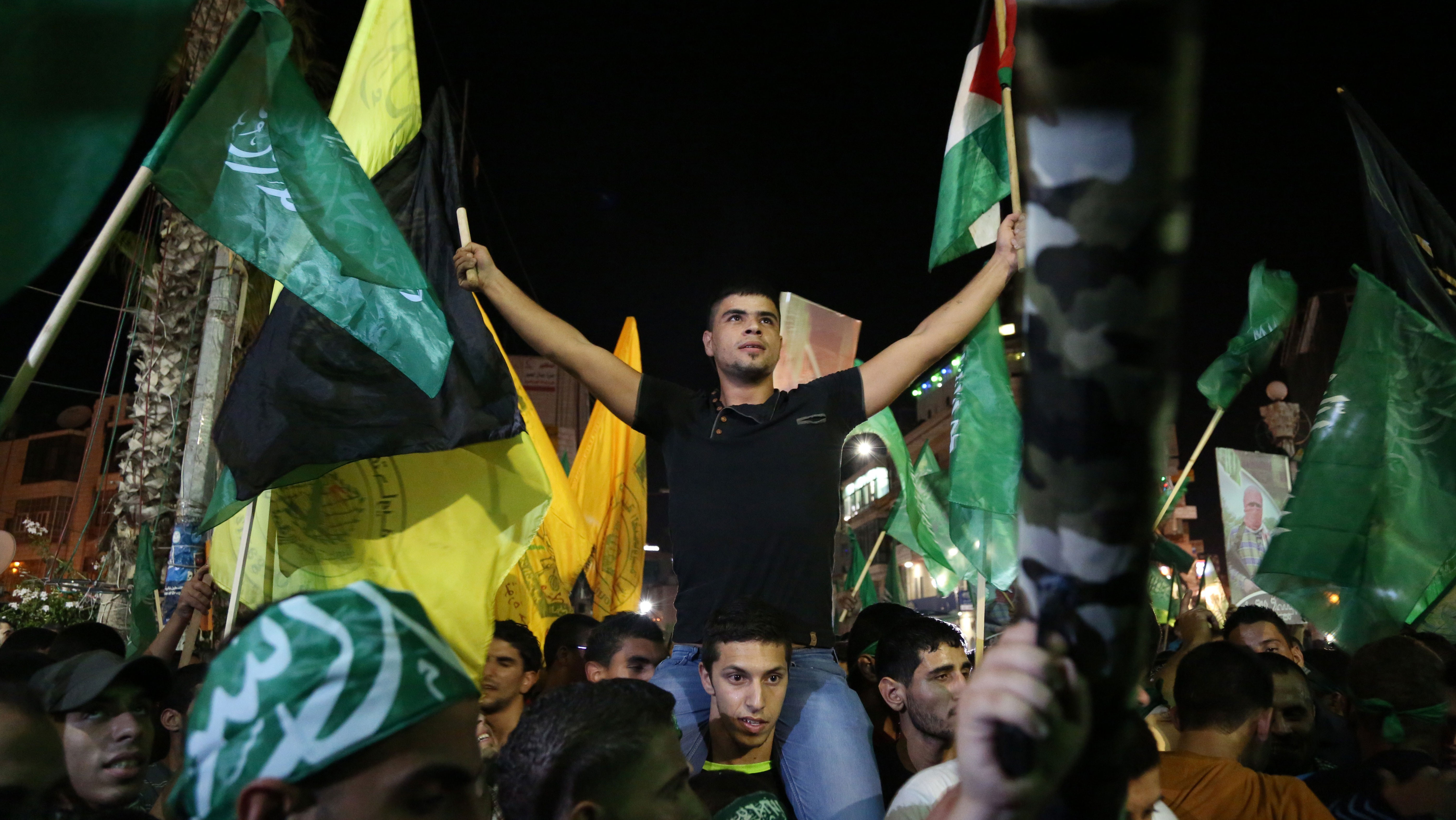Gaza ceasefire: what Israel and Hamas gained and lost
2,200 people died in the conflict and 11,000 were injured. Can either side claim the war was a success?

A free daily email with the biggest news stories of the day – and the best features from TheWeek.com
You are now subscribed
Your newsletter sign-up was successful
Israel and Hamas agreed to a "permanent" ceasefire last night, bringing an end to 50 days of fighting and leaving many people on both sides wondering what had been gained from the conflict.
Sami Abu Zuhri, the Hamas spokesman in Gaza, announced that a deal had been struck and Israeli authorities confirmed that they had agreed to its terms. Mahmoud Abbas, the Palestinian president, said: "There will be a complete stop in fighting."
The news was greeted by cheers and celebratory gunfire in Gaza City, as thousands of Palestinians flooded on to the streets.
The Week
Escape your echo chamber. Get the facts behind the news, plus analysis from multiple perspectives.

Sign up for The Week's Free Newsletters
From our morning news briefing to a weekly Good News Newsletter, get the best of The Week delivered directly to your inbox.
From our morning news briefing to a weekly Good News Newsletter, get the best of The Week delivered directly to your inbox.
However, the ceasefire was tested almost immediately when two Israelis were killed in a mortar attack in the Eshkol region near the Gaza border shortly after the truce was announced, The Times reports.
So what was gained and lost in the conflict? According to the United Nations, more than 2,200 people were killed throughout the seven-week war. The health ministry in Gaza said that 2,133 Palestinians died in the fighting, most of them civilians, and estimated that a further 11,000 were wounded. Seventy Israelis also died in the conflict, most of whom were soldiers from the Israel Defence Forces (IDF).
The UN estimates that at least 17,000 homes in Gaza were destroyed by Israeli bombardments, leaving 100,000 people homeless.
Hamas urged Gazans to celebrate a "victory," even though the terms of the deal "appeared to be almost identical to those agreed at the end of the previous war 21 months ago," The Guardian notes.
A free daily email with the biggest news stories of the day – and the best features from TheWeek.com
Under those terms, Israel has agreed to open border crossings and will allow construction materials and humanitarian aid to be brought into the Gaza Strip. It also agreed to extend the permitted fishing zone off the coast of Gaza by six miles. Egypt has also agreed that the Rafah border crossing between Gaza and Egypt will be opened.
Hamas spokesman Sami Abu Zuhri said: "Hamas is grateful to the people of Gaza who sacrificed their homes, children and money. We announce the victory today after achieving our goals."
For its part, Israel also declared the operation to have been a success. The Israeli military estimates that it depleted the weapons stocks of Hamas and other militant groups by up to a third. Israel also believes it has killed three of Hamas's top commanders and destroyed numerous Palestinian tunnels, limiting the threat posed by militants to Israeli citizens living near the border of Gaza.
But the military successes have come at a cost: world opinion turned against Israel during the conflict, with protests against the operation taking place in many European cities. Some degenerated into explicit anti-Semitism, and across the continent a rise in attacks on Jews was reported.
The conflict began on 8 July after three Israeli teenagers were abducted and killed in the West Bank. Israel responded by arresting Hamas members, which led to a sharp rise in rocket attacks from Gaza.
-
 Why are election experts taking Trump’s midterm threats seriously?
Why are election experts taking Trump’s midterm threats seriously?IN THE SPOTLIGHT As the president muses about polling place deployments and a centralized electoral system aimed at one-party control, lawmakers are taking this administration at its word
-
 ‘Restaurateurs have become millionaires’
‘Restaurateurs have become millionaires’Instant Opinion Opinion, comment and editorials of the day
-
 Earth is rapidly approaching a ‘hothouse’ trajectory of warming
Earth is rapidly approaching a ‘hothouse’ trajectory of warmingThe explainer It may become impossible to fix
-
 Epstein files topple law CEO, roil UK government
Epstein files topple law CEO, roil UK governmentSpeed Read Peter Mandelson, Britain’s former ambassador to the US, is caught up in the scandal
-
 Iran and US prepare to meet after skirmishes
Iran and US prepare to meet after skirmishesSpeed Read The incident comes amid heightened tensions in the Middle East
-
 Israel retrieves final hostage’s body from Gaza
Israel retrieves final hostage’s body from GazaSpeed Read The 24-year-old police officer was killed during the initial Hamas attack
-
 China’s Xi targets top general in growing purge
China’s Xi targets top general in growing purgeSpeed Read Zhang Youxia is being investigated over ‘grave violations’ of the law
-
 Panama and Canada are negotiating over a crucial copper mine
Panama and Canada are negotiating over a crucial copper mineIn the Spotlight Panama is set to make a final decision on the mine this summer
-
 Why Greenland’s natural resources are nearly impossible to mine
Why Greenland’s natural resources are nearly impossible to mineThe Explainer The country’s natural landscape makes the task extremely difficult
-
 Iran cuts internet as protests escalate
Iran cuts internet as protests escalateSpeed Reada Government buildings across the country have been set on fire
-
 US nabs ‘shadow’ tanker claimed by Russia
US nabs ‘shadow’ tanker claimed by RussiaSpeed Read The ship was one of two vessels seized by the US military